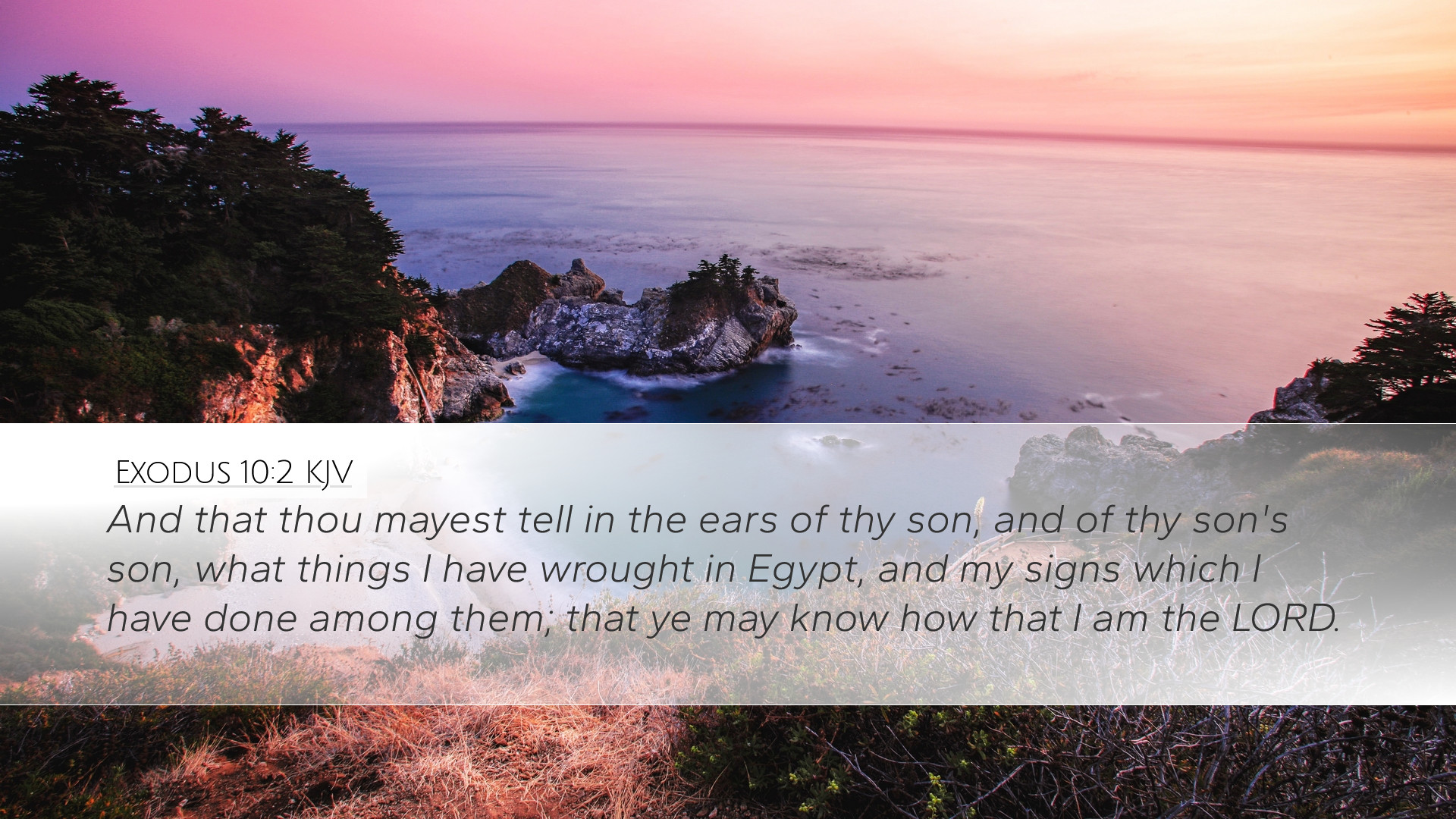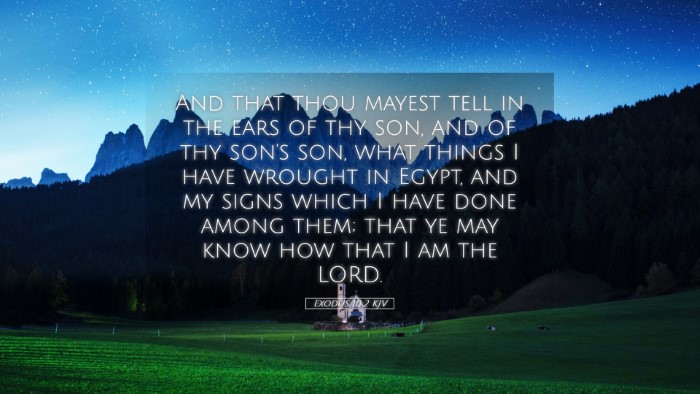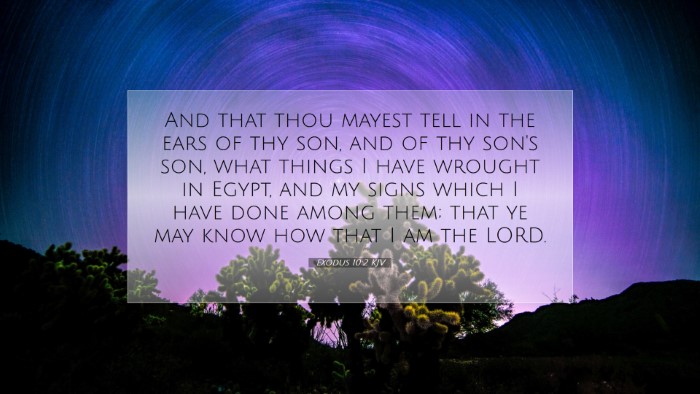Exodus 10:2 Commentary
Verse Reference: Exodus 10:2 states, "And that thou mayest tell in the ears of thy son, and of thy son's son, what things I have wrought in Egypt, and my signs which I have done among them; that ye may know that I am the Lord."
Purpose of God’s Signs
The purpose of the signs performed by God in Egypt was not merely to display His power, but to instill in future generations an understanding of God's sovereignty and faithfulness. The commentary aligns with the thoughts of Matthew Henry, who emphasizes that these signs are meant to be a testimony, passed down through generations. Each miraculous event served to reinforce the knowledge of God as the Lord, establishing a fundamental truth in the hearts of the Israelites.
The Importance of Remembrance
Albert Barnes reflects on the importance of remembering God’s deeds. The act of telling the stories of God's interventions in history serves to strengthen faith. By preserving this history, the current generation is reminded of God's past faithfulness, which in turn assures them of His ongoing presence and provision. This method of storytelling is a cognitive tool for education in the faith community, showing how the past informs the present and future.
Teaching Future Generations
Adam Clarke highlights that the instruction to tell these stories to one’s children underscores the parents' role as educators of their families in matters of faith. This is not just a passing of tales but a deliberate act of discipleship. The transmission of faith and memory of God’s action bring a deep-rooted understanding that shapes the identity of the community. Clarke points out that the oral tradition is vital for establishing a communal memory of God’s covenant with His people.
Learning from History
The historical context in which these signs occurred plays a significant part in understanding their relevance. Matthew Henry notes that the plagues serve as a backdrop to reveal the power of God in contrast to the impotent deities of Egypt. This historical analysis teaches us to scrutinize the influences of our own time and recognize that God is still active in the world, performing signs that demand attention and reflection.
Application for Today
The call to remember and transmit God’s deeds finds new expression in today’s context. Churches and leaders are tasked with the mission of creating environments where testimonies are shared and celebrated. Albert Barnes reiterates that it is through the retelling of God’s mighty acts that faith is kindled in the hearts of believers. This highlights a critical call to maintain a culture of remembrance within the church.
Encouragement for Faith Leaders
For pastors and church leaders, this verse can serve as a powerful reminder of their role in imparting faith to new generations. The responsibility outlined in this scripture compels leadership to prioritize teaching and sharing the stories of God’s intervention in their communities. As Clarke suggests, this adherence to remembrance creates a robust spiritual legacy for future believers.
Conclusion
In conclusion, Exodus 10:2 stands as an enduring reminder of the importance of remembering God’s works and the imperative to pass these narratives to successive generations. As we reflect on this command, we recognize our own role in the story of God, shaping both individual and communal identities through the power of remembrance. This insight calls us to a deeper engagement with Scripture and an active commitment to share the truth of God’s enduring presence and power.


